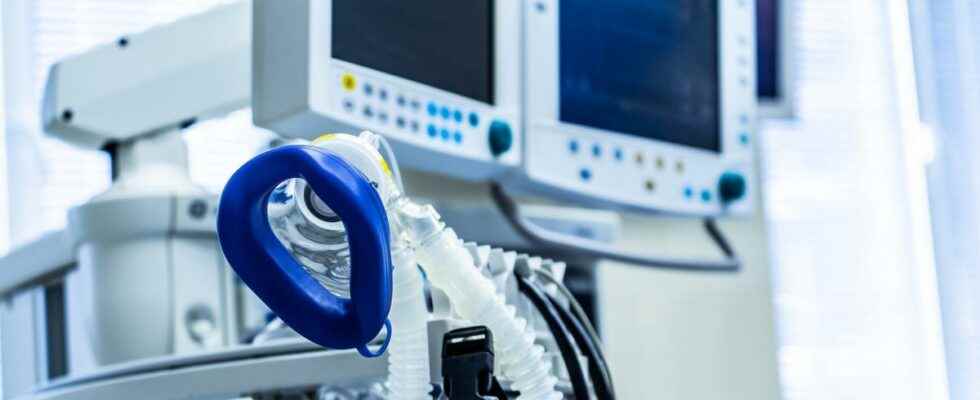Masks with magnets integrated into the machine risk disrupting the operation of metallic implanted medical devices, according to the National Agency for the Safety of Medicines.
A risk of interference between Philips masks with magnets for sleep apnea breathing apparatus and metallic implanted medical devices, such as pacemakers, has been reported by the Dutch group, the ANSM announced on Wednesday.
Interference could occur”when patients or one of their household members wear metallic implanted devices and are likely to be near these masks containing magnets (within a distance of less than 15 cm)” and “cause a malfunction“implants, according to a press release from the National Agency for the Safety of Medicines.
Five mask models are affected: Amara View minimal contact face mask, DreamWear face mask, DreamWisp nasal mask with cushion on the nose, Wisp and Wisp Youth nasal masks, 3100 NC/SP treatment mask. A wide range of metallic medical implants are susceptible to interference: pacemakers; metallic and magnetic implants/electrodes/valves in the upper limbs, torso, neck, head; metal stents (eg aneurysm, coronary, tracheobronchial, biliary); eye implants; implantable ports and pumps (e.g. insulin pumps)…
SEE ALSO – “One out of every two boxes of medicine is thrown away, 7 billion euros per year in the trash”, according to Dr Alain Toledano
14 cases reported worldwide
Patients using these masks or someone they know wearing an implanted metal medical device should contact their doctor for advice and their home healthcare provider to have them replaced with others without a magnet, the ANSM says.
This alert comes in the wake of the Philips case of defective sleep apnea ventilators. Since June 2021, the Dutch group has been forced to initiate a massive global recall campaign for several defective models of respirators used in particular by patients suffering from sleep apnea. These devices, used by some 350,000 patients in France and 1.5 million across Europe, contain sound-absorbing foam. Philips has noticed that particles come out of certain devices and can be inhaled or ingested by the patient, which can cause irritation and headaches. The group had also mentioned in June 2021 a risk “potential» of long-term cancers. Since then, Philips has been slow to replace defective devices.
Read alsoPhilips ventilators: an association of respiratory insufficiency launches a legal action
The Paris prosecutor’s office has since June taken up several complaints for aggravated deception and endangering the lives of others filed by patients denouncing these respirators. The Dutch group announced last week a widening of its losses in the third quarter, mainly by a large charge for the recall of defective devices, and announced the elimination of around 4,000 jobs.
